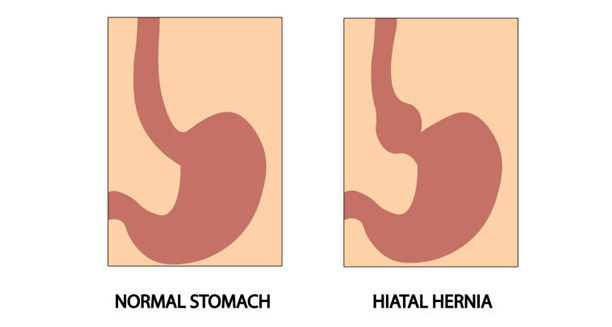The causes of hiatus hernia are primarily rooted in structural weakness of the diaphragm and increased abdominal pressure, though several risk factors can influence its development.
A hiatus hernia happens when part of the stomach pushes up through the hiatus. The hiatus is the small opening in the diaphragm where the oesophagus passes before it connects to the stomach. This shift can happen for many reasons. In most cases, it results from a mix of getting older, certain habits, and other health problems. Knowing the causes of hiatus hernia helps with both preventing and spotting it early. This is especially important because many risk factors can be controlled.
Ageing and Muscle Weakness
One of the main causes of hiatus hernia is the weakening of the diaphragm as people age. As we grow older, muscles and tissues lose strength. The diaphragm is no different. Its muscle fibres may stretch or tear over time. The hiatus can become wider or looser, which gives the stomach space to slide up into the chest. That’s why people over 50 are much more likely to develop this condition. The risk grows higher with each passing year.
Increased Pressure Inside the Belly
Another big reason behind the causes of hiatus hernia is too much pressure inside the belly. This pressure builds up over time or sometimes all at once. It pushes the stomach up through the weakened muscle. Lifting heavy items, straining to pass stool, or coughing a lot can all raise this pressure. Even throwing up with force can have the same effect. Over time, this stress weakens the muscles around the hiatus and leads to a hernia.
Obesity and Poor Digestion
Being overweight adds constant pressure to the stomach and diaphragm. Fat around the belly presses up against the organs. This can stretch the muscle wall and widen the hiatus. Obesity also links with bad posture and less movement, which make things worse. People who are overweight often suffer from reflux, which may also point to a hidden hiatus hernia. These added risks make weight a major factor in developing this condition.
Causes of Hiatus Hernia During Pregnancy
Pregnancy is another factor that adds to the causes of hiatus hernia. A growing womb pushes the stomach upwards. At the same time, pregnancy hormones relax muscles throughout the body—including the diaphragm. If a woman already has weak tissue, these changes make her more likely to develop a hernia. After giving birth, the body may not go back to normal. This can lead to long-term problems.
Injuries and Surgery
Sometimes, a direct injury causes a hiatus hernia. A strong blow to the chest or belly—like in a car crash—can tear or weaken the diaphragm. The damage might not show up right away. Later, though, the stomach can press through the weak spot. Certain surgeries around the chest or upper belly can also harm the diaphragm. These cases are less common but should not be overlooked.
Family History and Inherited Traits
Genes can also play a part in the causes of hiatus hernia. Some people are born with a larger hiatus or weak tissues in the diaphragm. Even without lifestyle risks, they may develop a hernia. This shows up more often in younger people with no known causes. Problems with how the body makes collagen or builds muscle could explain these inherited weaknesses.
Lifestyle Factors That Add Risk
Constipation is another everyday issue that adds to the pressure in the belly. When someone strains too hard during bowel movements, they put stress on the diaphragm. If the person is also older or overweight, the chance of getting a hernia grows. Keeping bowel movements regular with fibre, water, and medicine can help lower this risk.
Smoking is also a major concern. It weakens muscle and slows healing. Smokers cough more often, which puts pressure on the diaphragm. It also causes acid reflux, which brings more attention to a hernia that might have gone unnoticed. Quitting smoking helps prevent many health problems, including hernias.
Poor posture and weak core muscles also matter. Sitting in a slouched position compresses the stomach. Over time, this pressure can push the stomach upwards. A weak core means less support for the diaphragm. Simple exercise and better posture can make a big difference in lowering the risk.
Preventing the Causes of Hiatus Hernia
To sum up, the causes of hiatus hernia come from a mix of body weakness, rising belly pressure, and daily habits. Getting older, gaining weight, coughing too much, constipation, pregnancy, trauma, inherited traits, and lifestyle choices all play a part. Some of these—like age and genes—can’t be changed. But many others can. Healthy habits like eating well, quitting smoking, managing weight, and standing tall help prevent this condition.
By spotting these causes early, people can take action and avoid bigger problems. Knowing what leads to a hiatus hernia helps doctors and patients work together for better long-term care.


